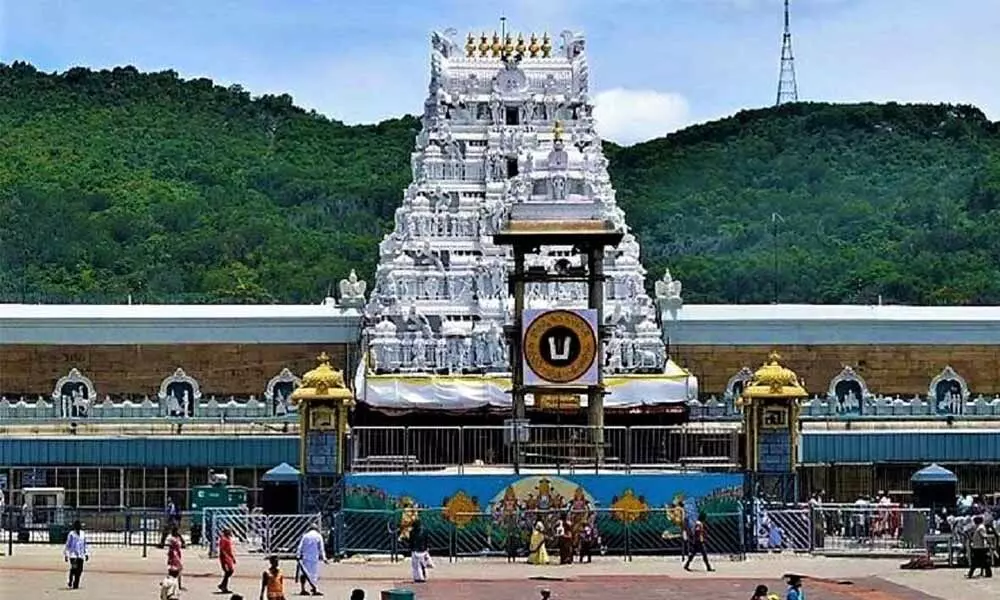BEE plan to make Tirumala net zero energy tourism centre
The strategies will help to reduce energy consumption by adopting energy-efficiency and meet the power requirement through renewable energy
image for illustrative purpose

Vijayawada: Bureau of Energy Efficiency (BEE), which comes under the Ministry of Power along with AP State Energy Conservation Mission (SECM) and Tirumala Tirupati Devasthanams (TTD) have decided to make Tirumala the first net zero energy tourism destination in the country by encouraging innovative energy-efficient and renewable energy strategies to help provide a roadmap for replicating its success elsewhere.
The strategies will help to reduce energy consumption by adopting energy-efficiency and meet the power requirement through renewable energy. BEE has decided to facilitate energy conservation programs to promote sustainable tourism in India. As part of this, BEE has selected TTD along with four other tourist locations in Maharashtra, Kerala, Gujarat and Jammu & Kashmir for a feasibility study to identify and adopt strategies to achieve net zero energy consumption.
TTD is an independent trust which manages several temples including the Lord Venkateswara temple at Tirumala-the second richest place of worship and most visited religious places in the world.
The TTD has identified the key areas such as replacing water pumping systems with energy-efficient pump sets and existing fans with energy-efficient fans, LED lighting and solar rooftop systems which will help achieve energy savings and reduce electricity bills. The TTD's energy efficiency initiatives will inspire others to look at eco-friendly solutions to help India's commitment to ensure a secure, clean, affordable and reliable energy supply for all and to progress towards the implementation of Paris agreement.
In a virtual review meeting between BEE, Government of India, TTD and State Energy Department, participated by Director General of BEE Abhay Bhakre, State Energy Secretary Srikant Nagulapalli along with VC and MD of NREDCAP S Ramana Reddy and senior officials of APSECM, Executive Officer of TTD KS Jawahar Reddy said that TTD was taking all necessary steps for providing better services to devotees by implementing eco-friendly energy efficient practices which would also help to make TTD as a world- class energy-efficient devotional destination across the globe.
According to him, Chief Minister YS Jagan Mohan Reddy has also emphasised the need to fully focus on providing high-quality services to devotees. During the meeting, Secretary for Energy Srikant Nagulapalli said energy- efficiency is important
for a sustainable future and AP is considered as one of the best States in promotion of renewable energy, innovative energy efficient technologies and best practices.
He said various energy efficiency programs taken up in the State so far were estimated to save energy around 5,600 MU worth around Rs 3,500 crore with reduction of around 4.7 Million tonnes of CO2.
He appreciated TTD's commitment towards energy-efficiency and said all necessary co-operations shall be extended from the Energy Department through APSECM, APSEEDCO and NREDCAP in implementation of energy-efficiency measures and renewable energy projects to make TTD a net zero energy destination.
Director General of BEE Abhay Bhakre said that the overall objective of sustainable tourism is envisaged to achieve by focusing on energy-efficiency, renewable energy and climate change.
APSECM CEO Chandrasekhar Reddy and other officials said that as per third party investment grade energy audit, it is recommended replacing a few of old pump sets with energy-efficiency pump sets in TTD. It is also recommended that ordinary fans be replaced with super-efficient BLDC (brushless direct current) fans in a phased manner. Replacing 5,000 ordinary fans with BLDC fans is estimated to achieve energy savings of 0.88 million units per annum with Rs 62 lakh monetary savings and payback of just two years and two months.

